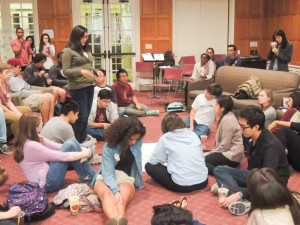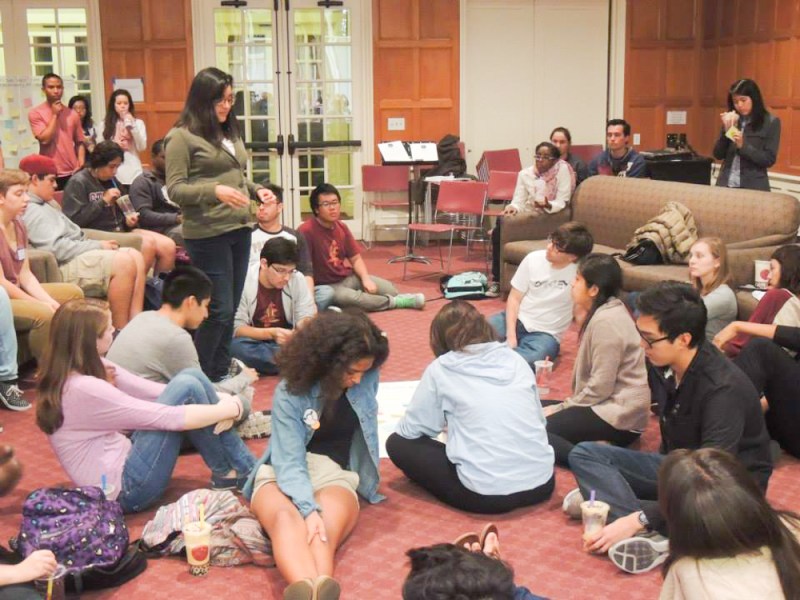
Since 2004, the First-Generation Low Income Partnership (FLIP), a student-led organization on campus, has sought to tackle one of the most sensitive issues facing the minority of students coming from low-income backgrounds and entering Stanford as the first in their families to get a college education–socio-economic class.
The group has recently launched efforts, however, to bring the discussion of class identity to the majority of students that do not identify as either first-generation or low-income. Erica McDowell ‘16, FLIP’s external community coordinator, said that she considers herself to be neither first-generation nor low-income and noted that discussing class issues can be hard for many students from a similar background.
“Everyone has a complex story about class,” McDowell said. “There are people who want to ‘engage in the conversation’ about class but feel uncomfortable doing so. I think wealthy people tend to be afraid to come out as wealthy or to identify that way because there’s so much stigma against wealthy people in this nation and the power they have wielded with their wealth.”
Holly Fetter ‘13 M.A. ‘14, who identifies as coming from an affluent background, said that she started to become more aware of her class privilege in her junior year and joined the FLIP leadership team as an external community coordinator.
“I was becoming cognizant of…how I could use my unique perspective to speak out about classism and economic inequality,” Fetter said, adding that she wanted to enhance FLIP’s community by facilitating the creation of opportunities for cross-class conversations.
That awareness led to the production of a “Class Confessions” event last year, to which participants were able to anonymously submit a situation where they kept their socio-economic status a secret. The submissions, which were posted on a Tumblr page, varied widely.
“I laughed along with the group when someone mentioned how crazy it is that they are paying $50,000 a year to get a good education,” one read. “For me and my family, paying a tenth of that a year is hard.”
“I use my knowledge about financial aid to pretend that I receive it when talking to friends and acquaintances,” another stated.
While FLIP initially worried about event attendance as well as potential backlash, according to Fetter, “Class Confessions” proved to be a success and also drew the attention of universities around the country, including Northwestern and the University of Chicago.
Though FLIP’s leaders are proud of the community they’ve fostered, mitigating class issues for anyone belonging to any socio-economic background is a continuous process, said Najla Gomez ‘14, FLIP’s co-president.
“I think Stanford does a very good job at sort of shadowing over class differences,” Gomez said. “The housing situation, the dining hall situation–everything–gets sort of established in a way that you can’t tell who is who and what [one’s] class background [is], which makes it sometimes alienating and isolating for students.”
According to McDowell, the second “Class Confessions” event will aim to be more inclusive and–by acknowledging middle-class perspectives in addition to those of affluent or low-income individuals–less binary.
“This year we’re trying to make it a more open space for people who lie in all parts of the class identity spectrum,” McDowell said.
Contact Vanessa Ochavillo at vochavillo ‘at’ stanford ‘dot’ edu.
